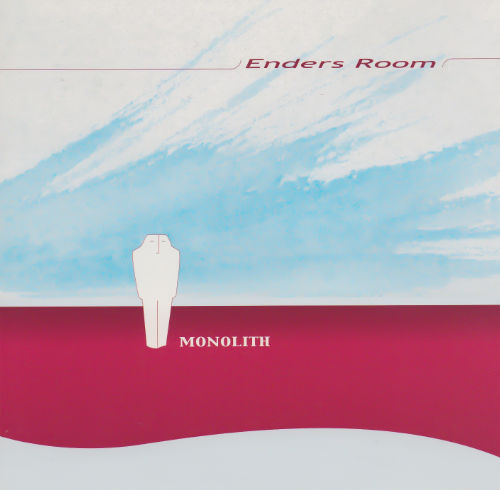Enders Room – Monolith
Enja Records
laut.de review
A beautiful display of a ‚different‘ zeitgeist.
Review by Kai Kopp:
With such immense technical and creative potential, it’s not surprising that real gems leave the Bavarian music labs. Johannes Enders can look back on a solid education on the tenor saxophone, which took him as an apprentice to Branford Marsalis in New York and as a sideman in the bands of Brad Mehldau and Jamaaladeen Tacuma, among others. Nevertheless, he remains based in Weilheim in Upper Bavaria, where he lends his skills to bands such as The Notwist, the Tied & Tickled Trio, and Mars Mobil.
With “Monolith”, Johannes Enders presents a first-class mastermind album. “With Enders Room, everything comes from me, inspired of course by many friends, but far removed from the Yank stories”. This puts him at the height of the European jazz zeitgeist, which is increasingly emancipating itself from Big Brother USA. His Nordic colleagues Molvaer, Wesseltoft, and Endresen, together with French (Frederic Galliano) and English (Cinematic Orchestra) creatives, have made the independence of European music culture heard.
The proximity to the cinematic works of Jason Swinscoe’s Cinematic Orchestra is particularly noticeable, although the drum arrangements on Enders Room cannot keep up with those of a Cinematic Orchestra. “Enders Room is a mixture of the acoustic zeitgeist and the fun of fiddling around”, explains Mr. Enders and thus manages to trigger a lack of understanding in me. Why didn’t he fiddle to the bitter end with the drum parts, of all things, which have been so essential since drum’n’bass? Maybe it’s because he only “bought a computer three years ago”?
Be that as it may, the rest of the album is more than convincing. Filled with eleven tracks based on the “profane musicality of all those involved” (including Wolfgang Muthspiel and Rebekka Bakken), he imposes his understanding of modern club jazz on the listener. I interpret the musical confusion that he leaves behind after the first listen as a positive sign, as 99% of all releases can be seen through and categorized at first glance.
“Monolith” shimmers conspicuously in this mishmash of releases and forces you to listen to it several times to be able to locate the work to some extent in your understanding of music. This phenomenon can be seen as proof of musical depth. In times of Spears‘ superficiality, it is a beautiful display of a ‚different‘ zeitgeist that gives me hope. Because “in a time of media overload, you have to create spaces that enable creativity”. Ender’s spaces!
Musicians:
Saxophone, Clarinet, Flute, Sampler, Programmed By, Drum Programming [Cr 78], Electric Piano [Fender Rhodes], Piano, Synthesizer [Ob 12] – Johannes Enders
Flugelhorn – Micha Acher (tracks: 2, 6, 8)
Guitar – Wolfgang Muthspiel (tracks: 5, 8, 9)
Piano – Roberto Di Gioia (tracks: 2, 3, 6, 9, 11)
Vibraphone – Joe Locke (tracks: 7, 9)
Vocals – Rebekka Bakken (tracks: 2, 4, 7)
Acoustic Bass – Ed Howard (tracks: 1, 4), Thomas Stabenow (tracks: 2, 7, 9, 11)
Bass [Fender Bass] – Patrick Scales (tracks: 3, 5)
Drums – Christian Salfellner (tracks: 10), Markus Acher (tracks: 1, 4)
